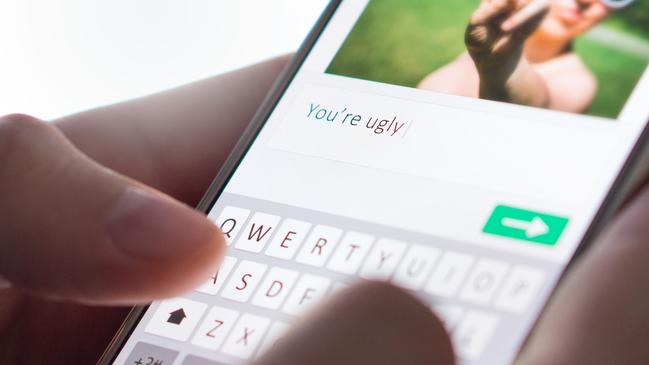Kylie Lang: Women are easy targets for trolls
There’s never an excuse for cyber violence, and yet over three-quarters of women have been a victim, writes Kylie Lang.
Kylie Lang
Don't miss out on the headlines from Kylie Lang. Followed categories will be added to My News.
Pity I didn’t know the United Nations was conducting a survey on online violence against women journalists.
Participation closed in late September and findings are yet to be released but questions included: “Have you been subjected to sexualised abuse and harassment on social media, targeted in digital security attacks that breach your privacy, or even threatened with rape or murder online?”
Yes, I have. And this past week was a prime example.
I knew anti-vaxxers were an unhinged lot, but to openly orchestrate a barrage of personal attacks on me and my family proves just how damaged these individuals can be.
Eschewing measured debate, they spewed out bilge and defaced happy snaps on my Instagram account, tried to flood my private Facebook account and, of course, went hard on Twitter (a horrid platform at the best of times).

Here is a snapshot: “You are evil and deserve to die”; “too ugly even to be raped”; “you must wake up every morning and hate your life”; and “a pox on you, your house and your family”.
It’s a good thing I’m thick-skinned – years as an opinion writer helps with that – and I have come to anticipate deranged reactions from fringe dwellers, but I do worry about other females on the end of disturbed insults.
Before writing this column, I didn’t want to believe it was a gendered issue. Surely males are trolled just as badly, I thought.
Not according to the UN, which released a report revealing three-quarters of women online had been exposed to some form of cyber violence.
Last month, charity organisation Plan International declared social media “the new frontier for gendered violence” after finding 65 per cent of Australian females aged 15-25 had been exposed to online violence, with one in five fearing for her physical safety.
And a straw poll of my colleagues shows women cop more online abuse of a sexual nature or about physical appearance than men.
Columnist Peter Gleeson has received his share of death threats but reckons “women are viewed by these bullies and pricks as easier targets because of a perception men are emotionally tougher”.
“They go after women’s physical attributes as they think they’ll get more of a reaction; it’s horrendous.”
On March 20 this year, a seemingly harmless what’s-on-in-Brisbane events’ listing led to the vilification of reporter Michelle Collins.
She’d written the story the day before its morning publication in print and online, but in the afternoon the Premier urged the public not to go out over the weekend to curb the spread of coronavirus.
While the story was removed from the paper’s website, trolls who had “screen-shotted” and shared it got stuck into her.
“Medical professionals said my family and I should not be treated if we presented to hospital, and that I would be responsible for people dying,” she says.
“I spent hours replying to explain what had happened but couldn’t keep up with the retweets.
“I thought I was a strong person but I could not stop crying and even now I feel anxious.”
Under draft legislation before the Federal Government to address online violence, the eSafety Commissioner will be able to direct platforms to remove abusive content, jail terms for using a platform to “menace, harass or offend” will increase from three to five years, and new civil penalties will include fines in the vicinity of $100,000.
Bring it on, but this won’t protect targets from potentially irreparable emotional or physical damage.
Before social media, if readers disagreed with a journalist they wrote letters to the editor.
Without the immediacy of venting online, letters were often more considered and carefully crafted.
Vile personal attacks wouldn’t be published.
Now, anyone connected to the internet has a voice.
That’s not necessarily a bad thing.
Journalists are not above reproach and those of us paid to express opinions should not be blinkered to alternative views.
Online violence, however, is never OK.
Kylie Lang is associate editor of The Courier-Mail


